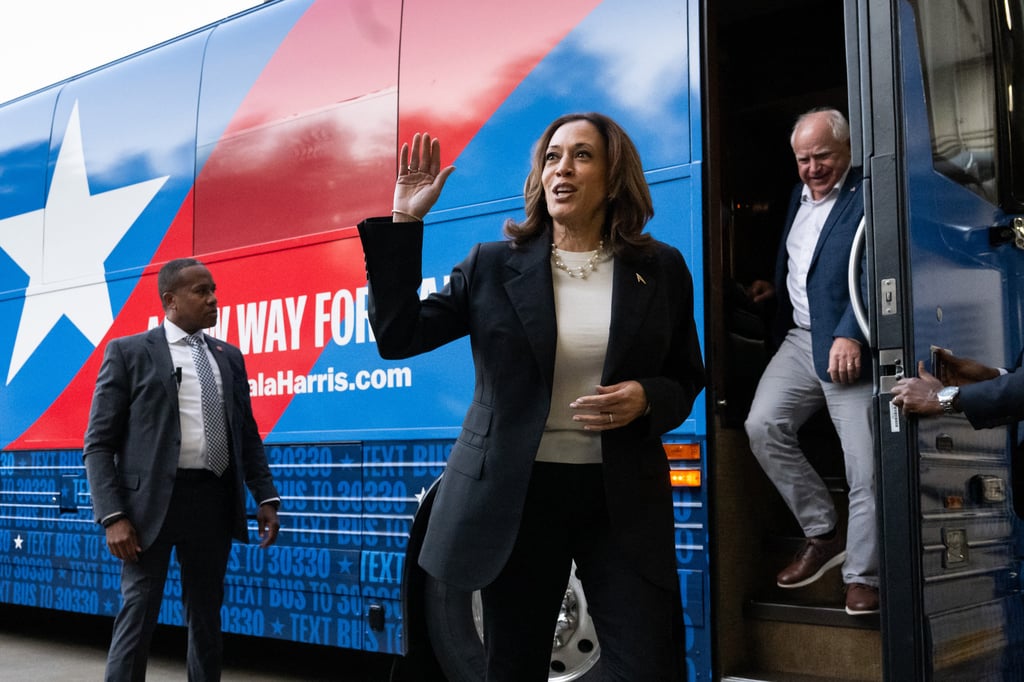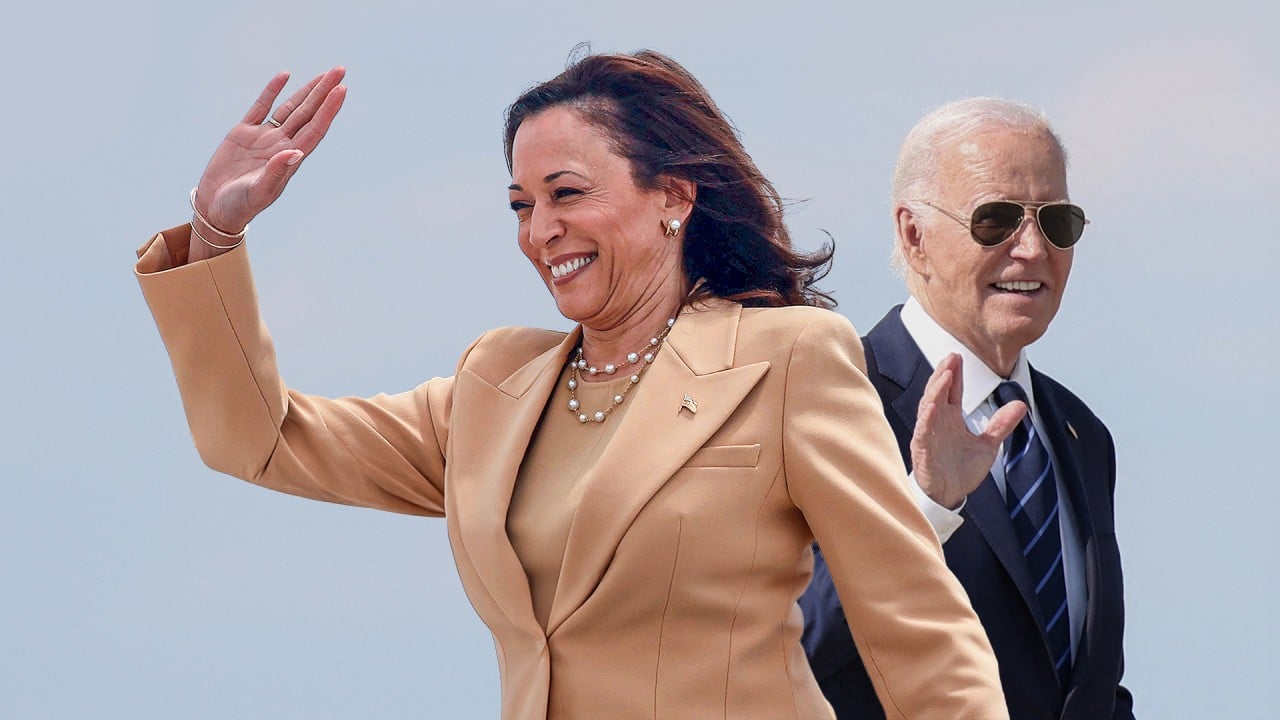Kamala Harris pitches continuity in China-lite first interview since nomination
Harris, who was vaulted into position about five weeks ago when US President Joe Biden withdrew from the race and endorsed her as the party’s nominee, spoke for most of the interview.
The interview was thin on foreign policy.
Asked whether she would be different from Biden on Israel, Harris said she was “unequivocal and unwavering” in her support for its defence, but also noted that “far too many innocent Palestinians have been killed”.
“We have to get a deal done,” she said.
In response to a question about Biden dropping out, Harris spoke about his “transformative” presidency, highlighting his record in building confidence in “who we are as America”; bringing allies together; investing in domestic infrastructure and industries; and standing for “the importance of sovereignty and territorial integrity”.
The Democratic platform, released before the party’s national convention last week in Chicago, gave little insight into any differences Harris might have with Biden’s policies regarding Beijing or the Indo-Pacific region.
The 91-page document outlines familiar hallmarks of Biden policy: close coordination with allies to address “intense strategic competition” with China; continued resistance to Chinese coercion and unfair trade practices; a stronger US industrial base; and cooperation with Beijing where possible on climate, fentanyl and artificial intelligence.
The platform also criticises Republican presidential nominee Donald Trump’s plan to impose a 10 per cent tariffs on all imports, as well as his threat to impose a 60 per cent tariff on Chinese goods, calling them “reckless” moves that would cost American families.
Harris did not mention Trump’s tariff proposals on Thursday, even as she spoke about the effect of inflation on Americans and supporting the middle class.
Asked to address her changed stances on immigration and fracking, Harris said her “values had not changed”.
Addressing her pivot from supporting a fracking ban to opposing one, she pointed to the Biden administration’s Inflation Reduction Act, which delivered record investments in combating climate change, as an example of her stance on climate.
Harris has been hit by Republicans on her immigration record. In 2019, she dismissed Trump’s border wall as a “medieval vanity project”.
Yet at last week’s Democratic national convention, Harris committed to reviving a bipartisan immigration deal that collapsed in the Senate earlier this year. The agreement, a compromise between congressional Republicans and Joe Biden’s administration, would have represented the toughest crackdown on illegal immigration in years.
On Thursday, Harris reiterated her commitment to enforcing the law and signing the immigration bill, touting her record as a prosecutor.

Election day is November 5, but early voting starts next month in several states.
China has not been a major focus of the Democratic campaign, but is expected to come up in the first Harris-Trump debate, scheduled for September 10.
Harris has never been to China. Walz, however, spent time there as a teacher and has made some 30 trips to the country. He has been criticised by Republicans who argue that his experience with China has left him too close to Beijing.
That was not among the list of controversies that Walz was asked to address on Thursday. Instead, the Minnesota governor was asked to explain accusations that he misrepresented his military record, experience with fertility treatments, and history of drunk and reckless driving.
“I certainly own my mistakes when I make them,” Walz responded.
According to a Reuters/Ipsos poll published on Thursday, Harris leads Trump 45 per cent to 41 per cent nationwide, though the US’ Electoral College system of selecting the president and vice-president means the voting outcome in a handful of states will be decisive.
An August poll by the Associated Press-NORC Centre for Public Affairs Research, conducted before the Democratic convention, found that 44 per cent of US adults had an unfavourable view of Republican vice-presidential candidate J.D. Vance, compared with 25 per cent for Walz.
